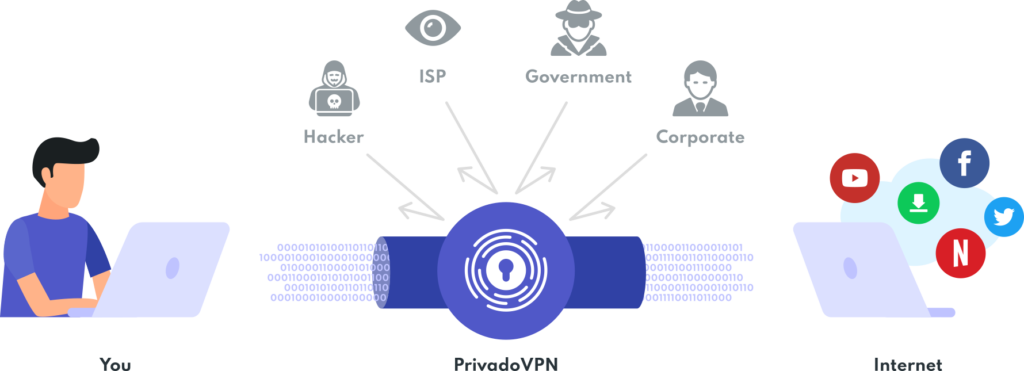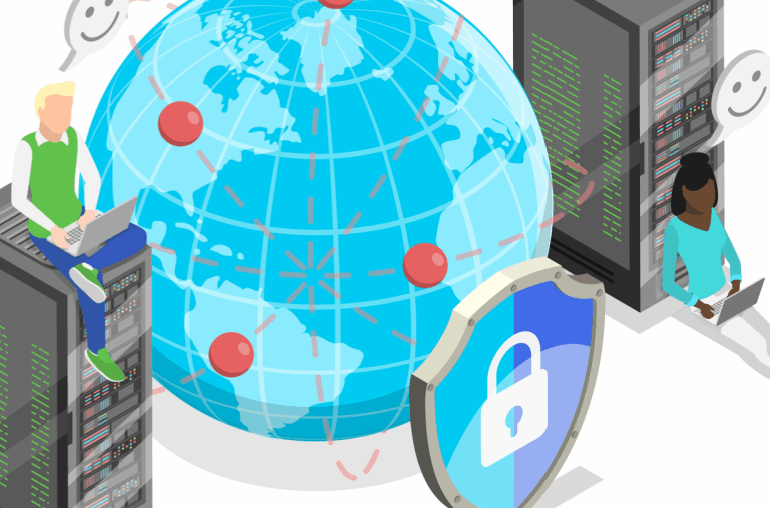When selecting an Internet service provider (ISP), there are many traits to look out for. Speed, data cap, and bandwidth are a few of the factors you will consider when making your choice. You compare a couple of providers, find an attractive deal, and lock yourself in an excellent contract. However, a few weeks in and you notice slower than usual traffic. You are watching your favorite show or playing a popular online game, and it starts buffering. The most frustrating part? It clearly hasn’t reached the maximum Gbps bandwidth you signed up for.
What’s happening? Well, it is highly possible that your Internet service provider is selectively reducing your internet speed. It is shocking but completely legal. That being said, you do not have to be subjected to the same rules. Using a VPN is a simple way to bypass the treachery of your ISP and we are here to explain to you how.
What is Throttling?
ISP throttling is a common practice that has been on the rise. Over the last couple of years, there has been an increase in services offering HD-quality entertainment at the tip of every possible device. The demand for high bandwidth has naturally also increased.
This has forced many ISP to regularly examine the type of traffic requested and restrict the speed of the demand if it is coming from services such as Netflix, HBO, Hulu, Disney Plus, etc. Not only that but many may also restrict activities such as online games, file-sharing, and torrenting.
As you already know, if you are not using an encrypted network, your ISP can easily look into your traffic. They track your activities while you are using their networks and selectively apply the available bandwidth based on these activities. Throttling is a reactive method for ISPs to alleviate demand bottlenecks and ensure that all their clientele receives enough bandwidth when demand is high.
Nowadays, most providers use this tactic to control demand. Hence, choosing a different provider will most likely not solve the issue. When demand is high and resources are low, you will most likely experience activity-based throttling. This comes at a cost for you. If you are a high-bandwidth user, you are definitely not getting 100% of the speed you paid for.

A VPN: The Invisible Cape
You may know Virtual Private Networks as a gateway to protect your digital privacy. When connecting through a VPN, your traffic is encrypted and redirected through a secure third-party server. This ensures that your online activities are only visible to you and the service at the receiving end.
The end-to-end encryption nature of a VPN also ensures that your ISP cannot decipher what services you are using. When connected to a VPN, your ISP will know the amount of data being requested. However, it won’t be able to recognize for what services the bandwidth is requested. Since throttling is an activity-based bandwidth capping and not amount-based bandwidth capping, you will not experience slow speed.
Bottom Line
Using a VPN has many advantages. However, bypassing ISP throttling is by far one of our favorite ones. Many do not know about throttling because we often do not want to bother with second-guessing services that we pay good money for. The practice is common and infuriating. However, a simple solution does exist for you to not have to bother sacrificing your speed when you are online.
PrivadoVPN is a simple and easy-to-install VPN service. On top of protecting your online activities, it is packed with perks such as annihilating throttling practices. You simply install it, turn it on, and forget about it!
Download PrivadoVPN
Protect your privacy with a world-class VPN. Sign up for premium access to PrivadoVPN and get unlimited monthly data, access to 300+ servers from around the world, and up to 10 simultaneous connections. Get a top-rated VPN that can secure your privacy at home, at work, or on the go.
Sign up for PrivadoVPN today!




